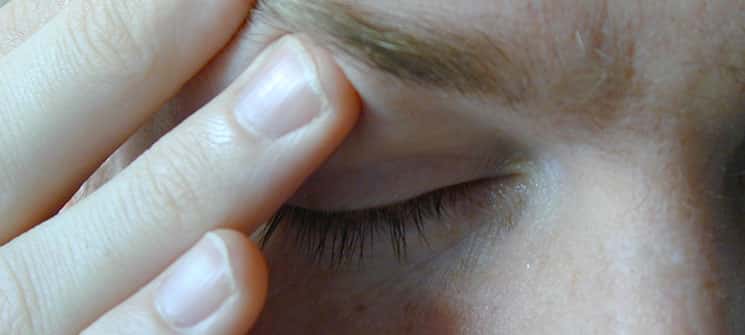Since many years science has been dealing with the question: “What exactly happens in our brain while we are sleeping?” One thing already got clear: especially for our brain and its functions sleep is very important. Particularly dealing with daytime-stress, psychological conflicts and emotions happens via our brain and mainly during phases of REM-sleep. Linking of information, creation of new connections in the network of the brain as well as rooting information and learning contents (memory consolidation) is a matter of the “sleeping brain”. Our nightly “neuronal disposal” seems to be a significant aspect of our mental-cognitive as well as our creative abilities and outputs, too.
Recently, in the course of further researches completely new and astonishing findings have been made. Namely, that our brain -– like our whole organism –- is releasing from toxins during sleeping. This finding even more clearly substantiates the necessity of healthy and recreational sleep. Because, when you are sleeping too less or produce a disturbed, no longer recreational sleep you are damaging your brain and run into danger of suffering under hitherto incurable diseases like dementia and Alzheimer’s when getting older.
Alzheimer’s –- a familiar problem
Still, in popular belief many assume that we human beings “calcify” when getting older and our mental performance therefore decreases strongly. Basically, this assumption is both right and wrong. Long since, in science it is obsolete that calcification is happening in the brains of healthy and old people or that their performance decreases. The German physician Dr. Alois Alzheimer (1864-1915) already proved more than 100 years ago (1906) that the mental abilities with age are due to pathological processes in our brain. Alzheimer succeeded in providing evidence for protein deposits in the brain with a patient suffering under severe memory disorders. His doctor colleague Dr. Rudolf Virchow (1821-1902) already named these deposits in 1854 –- the so-called “Amyloids”. But, Dr. Virchow didn’t recognize a direct relation with the loss of mental performance at that time.
Especially senile dementia rapidly increased during the last two decades and occupies as well science, physicians, therapists, persons affected as relatives. Current estimates assume that two thirds of all senile dementia are Alzheimer’s. According to the current state of Alzheimer’s-research possibly every human being might come down with the disease. With a person of 100 years of age, the so-called “lifetime risk” –- the risk of coming down with the disease within the own life span –- is about 100 %. In Europe, life expectancy is still under 100 years. But, until 2050 this might change. Since 1925, each decade life expectance constantly has risen between three and four years. Nowadays the average life expectancy is 75 – 80 years. One can assume that every third person is going to die with symptoms of Alzheimer’s. It is known, that Alzheimer’s is not coming overnight, experts assume a “lead time” of about 30 years. Most important risk factor is and remains getting older, but possible our sleep is playing a decisive role when it comes to development and prevention. The long term effect of a sleep too short or persistently disturbed might be significantly involved in the development of this still incurable disease.
What has Alzheimer’s has got to do with our sleep?
Due to the recent development, dementia and Alzheimer’s are bound for getting a widespread disease for elder people. As with every other diseases people are feverishly busy with cause study. Once, the cause is clear and eliminated, the disease doesn’t arise resp. the disease process comes to a standstill. How can this be reached? Scientists of the Rochester University, NY, might have made a breakthrough discovery: besides genetic factors, our nighttime sleep might play a central role with age-related diseases like Alzheimer’s. So, sufficient, healthy sleep might be one of the most effective weapons against dementia and Alzheimer’s!
In the development of Alzheimer’s toxic metabolic products or harmful substances like beta-amyloids, for example, are playing a decisive role. Beta-amyloids are fragments of a protein. And as Dr. Alois Alzheimer already discovered more than 100 years ago, the problem is the accumulation of so-called amyloid plaques between neurons of the brain. These accumulate when getting older and build a hard, indissoluble coating (plaque) which more and more leads to a mental and physical decline of the person afflicted. Maiken Nedergaard, Danish scientist and leader of the study of the Rochester University, introduced a new dimension to the role of sleep.


This post is also available in / Diesen Beitrag gibt es auch in:


Leave a Reply